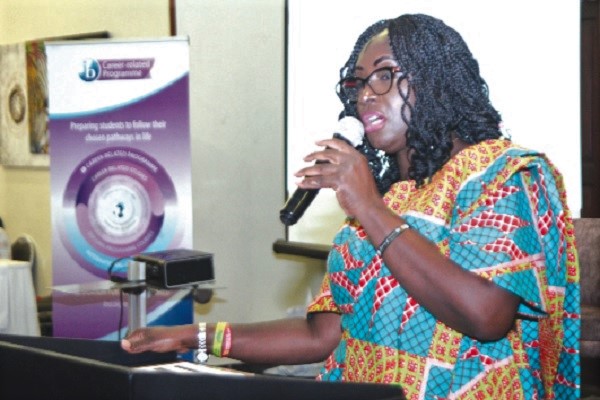
We need career-focused education curriculum — Educationists
Some educationists have advocated a career-focused education curriculum for Ghana to help bridge the skills gap between school and the industry.
They observed that the introduction of a skills-based curriculum at the foundation level of education would help students to discover their potential early and build a solid profession.
Advertisement
A Lecturer at the Ashesi University, Dr Esi E. Ansah; the Development and Recognition Manager at the International Baccalaureate (IB) Organisation, UK, Dr Peter Fidczuk; and the Director of Al-Rayan International School (ARIS), Dr Fatma Odaymat, made that call at a national dialogue on career-focused education held in Accra on Wednesday.
The dialogue session was organised by ARIS on the theme: “Career-Focused Education: the Personalised approach.”
The Deputy Minister of Education in charge of Technical and Vocational Education and Training (TVET), Mrs Gifty Twum Ampofo, was present at the dialogue session, as were the parents of the students of ARIS and other stakeholders in the education sector.
Career-based education key
Dr Ansah said the adoption of the career-focused education module was the way to go if the country wanted to build a generation of graduates who would be agile and fit for purpose for the industry.
She stressed that although it was good for students to have a grasp of theory in school, it was more important for them to balance it with practical skills needed for work.
“There is a difference between schooling and education. Schooling will bring you many certificates but education is when one has been prepared to be in a better position to apply knowledge to affect their life and the society,” she stressed.
Dr Ansah said the educational system must be redesigned such that students would be equipped with skills to multi-task and adjust to other knowledge areas while at work.
She said in an era of compressed workspace, employers were earnestly looking out for people who would add value rather than being glued to one area of knowledge.
Holistic education
Dr Fidczuk also called for holistic education that would make students blend classroom knowledge with the outside world.
He stressed that it was important for the curriculum to equip students with knowledge, skills and personal attributes to succeed.
He said the educational curriculum needed to be designed to be relevant for particular locations, stressing that “what is relevant in London is different from what is in Accra.”
ARIS IB module
For her part, Dr Odaymat said ARIS had designed its curriculum to meet the specific needs of every student rather than using wholesale method of teaching.
She said the way forward to produce students who would be useful to the society was to blend grammar education with TVET to build human resource with the technical ability to tackle development challenges.
“Usually, people finish school and the university chooses for them what they should do, but we are saying no. They can start choosing their careers right from the basic level,” she said.
Dr Odaymat said the ARIS would from next academic year start rolling out the IB career-focused programme that personalised the learning needs for the children to pursue courses in engineering, architecture, finance and business, film work, policing, among others.



